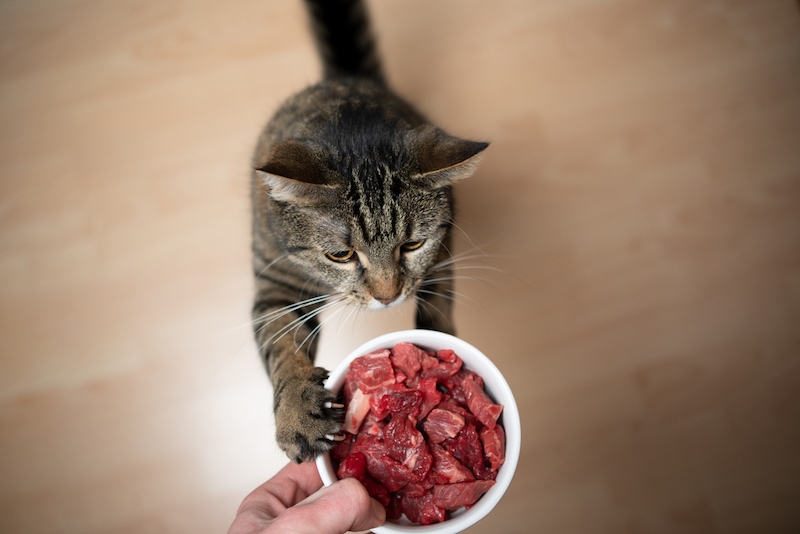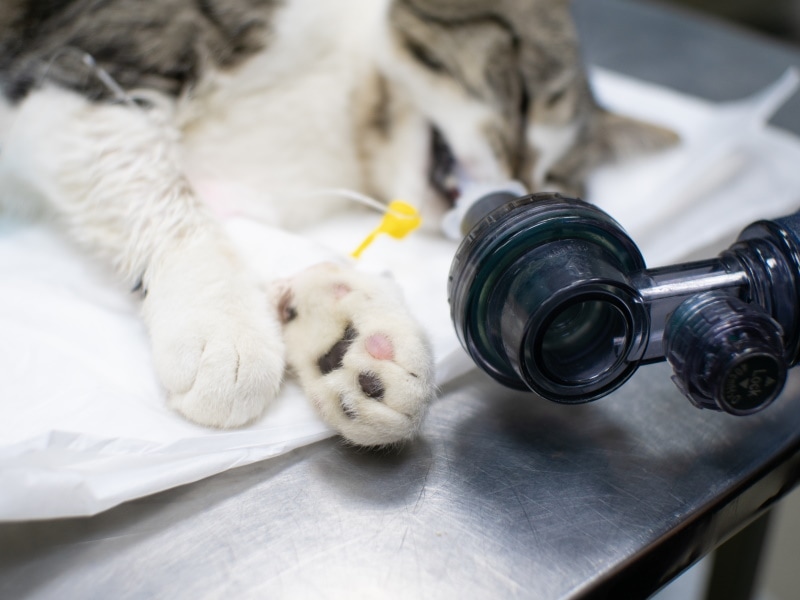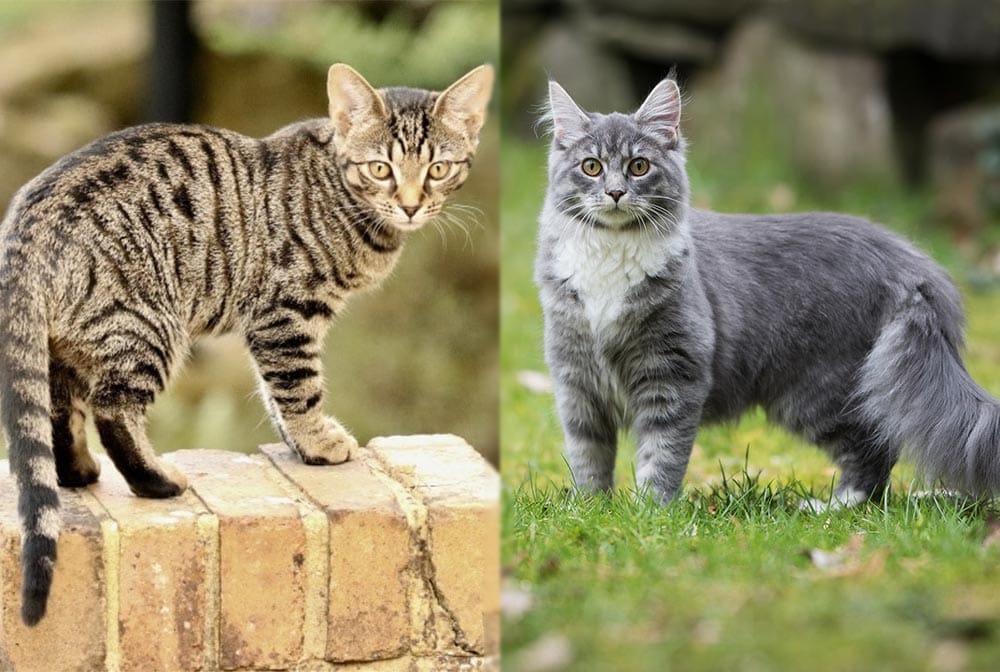Why Do Cats Pee on Things? 5 Reasons & How to Stop It

Updated on
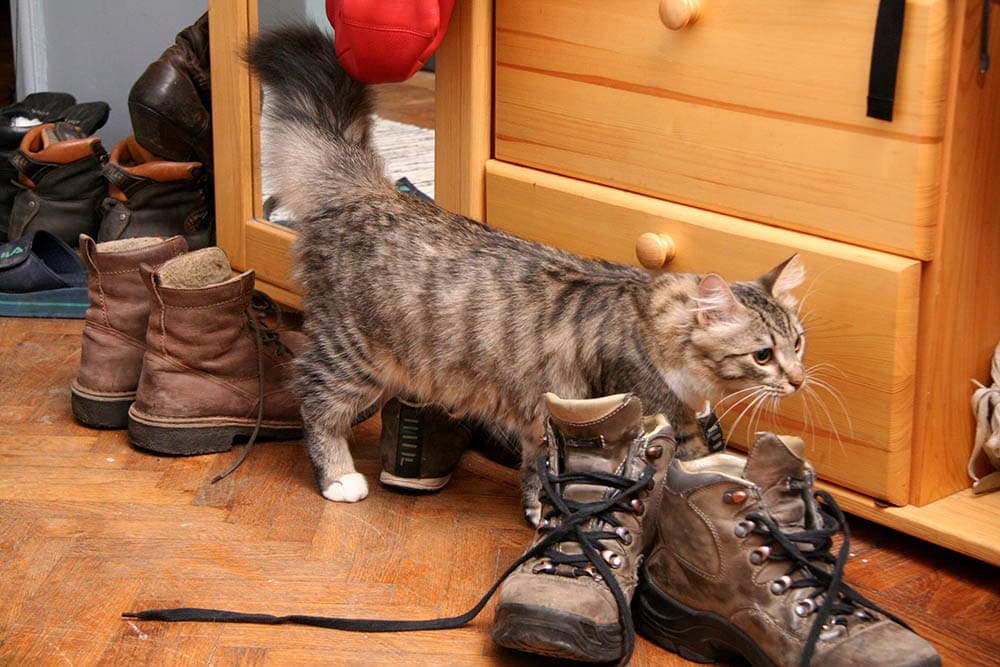
Cats have a reputation for cleanliness and trainability, especially when it comes to litter box training. Many cats take to the litter box easily and have accidents in the household infrequently, no matter the sex, breed, or age.
If your cat suddenly starts peeing all over the house, it can be a problem. No one wants to clean up constant pee spots and deal with the strong odor of urine, especially from a cat that had no problem using a litter box before. Find out the top reasons cats pee on things and how to stop it.
The 5 Reasons Why Cats Pee on Things
1. Medical Problems
Sudden, inappropriate peeing in an otherwise litter box-trained cat can be a symptom of a health condition. Cats are prone to kidney and urinary tract problems, which can cause discomfort and urgency that forces them to pee outside their litter box.
Direct urinary tract problems aren’t the only medical cause of inappropriate urination, however. Cats are habitual, territorial creatures. Anything that upsets their well-being can affect litter box training, such as diabetes, arthritis, or an infection. If your cat is peeing in the house uncharacteristically, it’s best to take it to the vet for a checkup to rule out medical causes.
2. Dirty Litter Box
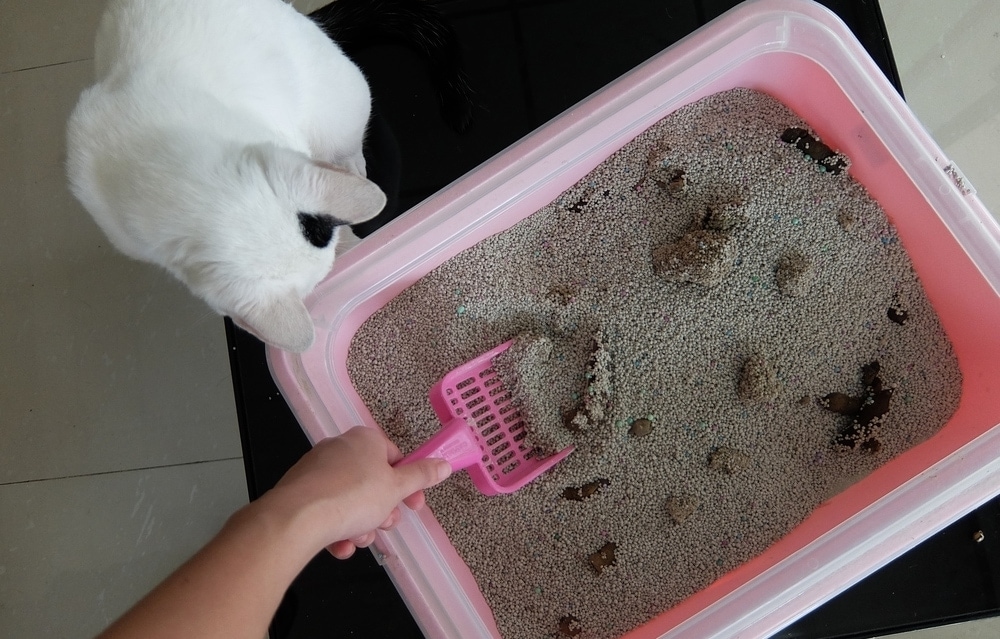
Cats are particular about their environment, including their litter box. One of the most common causes of peeing outside the litter box is a dirty litter box. If you don’t keep your cat’s litter box clean, it may be tempted to look for other places to relieve itself.
If you have one cat, you should clean your litter box at least once a day. If you have multiple cats, you may need to scoop the litter box multiple times a day or provide more than one litter box. Litter boxes should be deep cleaned with replacement litter every few weeks.
Even after the litter is changed you may be left with smells and stains around the house – but with the Hepper Advanced Bio-Enzyme Pet Stain & Odor Eliminator Spray, you can take care of it all. It's our product, and we love it so much, we just have to share it! It permanently removes the very worst smells and stains, and we offer a 100% satisfaction guarantee!
- ADVANCED ENZYMATIC CLEANER - Penetrates the most stubborn smells and stains at the deepest molecular...
- FOR ANY MESS, ON ANY SURFACE - This pet odor eliminator cleans your carpets, floors, furniture,...
3. Type of Litter
Cat owners have plenty of commercial litter brands and types to choose from, but it’s not about your preference as much as your cat’s. Not every type of litter is appropriate for your cat’s needs, even if you like the idea of clay litter or litter made from recycled materials.
If your cat is frequently peeing outside of the litter box, it may be time to switch up the litter to see if that’s the problem. You may need to try a few different kinds to see what your cat likes. In addition, kittens also develop a preference for litter early, so making a switch with a kitten can prompt inappropriate peeing.
4. Type and Location of Litter Box
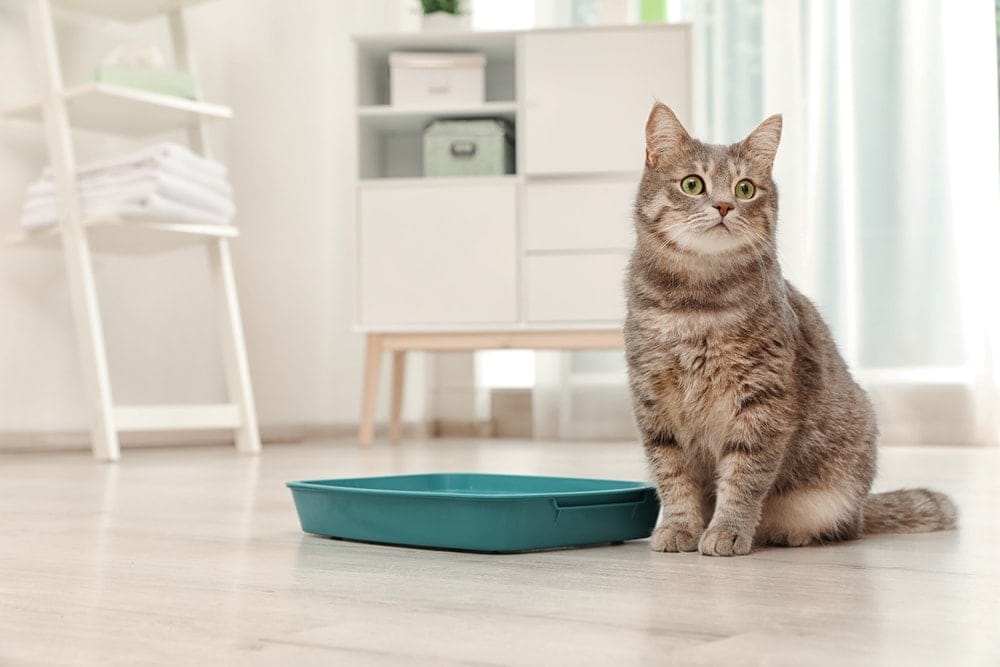
Even if the litter box is clean and your cat likes the litter, they may have issues with the box itself or its location. If a cat struggles with health problems, like arthritis or failing vision, it may have difficulty accessing the litter box in a dark part of the house, like a basement. This is also true if you have a litter box with high sides that may be difficult for less agile cats to get into, such as aging or overweight felines.
Cats also prefer litter boxes in quiet and private spots rather than next to a loud furnace or washing machine. Make sure you have your cat’s litter box in an ideal location so they feel as comfortable as possible about going to the bathroom in the right spot.
5. Multiple Cats
Households with multiple cats are more likely to experience marking and other urination issues. Cats don’t always get along, so bullying or dominance issues can prevent one cat from accessing the litter box when it needs to. If you suspect this is the case, provide a litter box in a separate area. It’s also good to avoid covered litter boxes that can make your cat feel trapped by other cats.
Cats also use urine as a way of establishing territory and power. You may be dealing with a cat that’s trying to tell all the other cats that it’s the boss. If this is the case, you may need to consult a behaviorist to address the issue.
In general, having multiple litter boxes with multiple cats prevents many urination and dominance issues and helps your cats stay clean. A good rule of thumb is to have one additional litter box for the number of cats you own. So, three kitties would need four separate litter boxes.
Conclusion
Cats may pee in the house for a variety of reasons, and unfortunately, there’s no quick fix. Once you rule out medical issues, experiment with different litter box types and locations, try different litter, and make sure your cat can access the litter box easily and comfortably. If these tips don’t work, you can speak to a cat behaviorist to work through the problems and restore harmony in your household.
Featured Image Credit: AJSTUDIO PHOTOGRAPHY, Shutterstock



